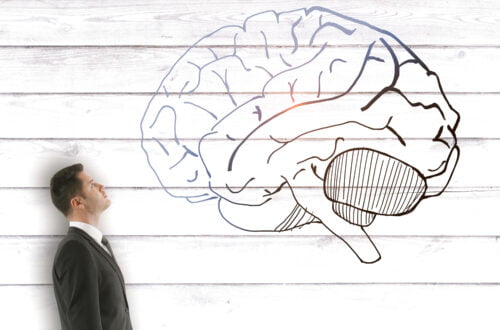Dementia – The Stages
Dementia is a scary diagnosis. It comes with so many unknowns. But understanding the stages of dementia can help to provide some clarity and peace of mind. Dementia is a broad term used to describe a decline in cognitive function. This can range from mild forgetfulness to complete loss of cognitive function and is not always indicative of the presence of Alzheimer’s disease. There are three general stages of dementia: mild, moderate, and severe.

What is Dementia
Dementia is a general term for a decline in mental ability due to disease or injury. It can cause problems with memory, thinking, and behavior.
Dementia affects people of all ages but is most common in older adults. About 5% of people over the age of 65 have dementia, and this number increases to 20% for those over 85. There is no one type of dementia, but rather, it is an umbrella term for various conditions that cause cognitive decline.
Alzheimer’s disease is the most common type of dementia, accounting for 60-80% of cases. Other types include Lewy body dementia, frontotemporal dementia, and vascular dementia. While there is no cure for dementia, there are treatments available to help manage symptoms and slow progression of the disease.
Early Stage: Symptoms and Treatment
Early stages of dementia are often difficult to identify because symptoms can be subtle. However, there are some common signs and symptoms associated with early dementia, which include:
- Memory loss: This is one of the most common early symptoms of dementia. Individuals may begin to forget recent events or conversations, and they may struggle to remember familiar faces or places.
- Changes in communication: People with early dementia may have difficulty finding the right words when speaking or writing. They may also start to repeat themselves or have trouble following conversations.
- Changes in mood and behavior: Those with early dementia may experience mood swings or changes in their personality. They may become more withdrawn, irritable, or anxious.
Middle Stage: Symptoms and Treatment
As dementia progresses, patients often experience changes in their physical abilities and mood. Here are some of the most common symptoms of middle-stage dementia, as well as tips for treatment.
Patients in the middle stages of dementia may have difficulty with balance and coordination, making falls more likely. They may also experience incontinence and need help with activities of daily living such as dressing, bathing, and using the restroom.
In terms of mood, patients may become more agitated, anxious, or even aggressive. Hallucinations and delusions are also common at this stage.
To manage these symptoms, it’s important to create a safe environment for the patient. This means removing potential hazards from the home and providing close supervision when they are up and about. Medications can also be used to help manage mood swings and other behavioral problems.
Late Stage: Symptoms and Treatment
Symptoms of dementia can vary greatly from person to person, and the severity of symptoms can range from mild to severe. In the late stages of dementia, patients may lose the ability to communicate and may become bedridden. They may also experience incontinence and require around-the-clock care. There is no one-size-fits-all approach to treating dementia, but there are some treatments that can help manage the symptoms. These include antipsychotic medications, antidepressants, and mood stabilizers.
End of Life: Symptoms and Care
Although it may seem daunting, preparing for the end of life of a loved one with dementia does not have to be difficult. There are a few key things to keep in mind when it comes to symptoms and care.
First, it is important to understand that the symptoms of dementia can vary greatly from person to person. This means that there is no one-size-fits-all approach to care. However, there are some common symptoms that many people with dementia experience as the disease progresses. These include things like weight loss, changes in sleeping patterns, and increased confusion or agitation.
It is also important to remember that people with dementia often need more help with basic activities of daily living as the disease progresses. This may include help with bathing, dressing, eating, and using the bathroom. It is important to be patient and understanding when providing this type of care.
Conclusion
In conclusion, dementia is a debilitating disease that robs people of their memories and identities. It is a growing problem in our aging population, and we need to do more to support those affected by it. There is no cure for dementia, but there are ways to manage it and make life easier for those affected. If you know someone with dementia, be patient, understanding, and supportive.






